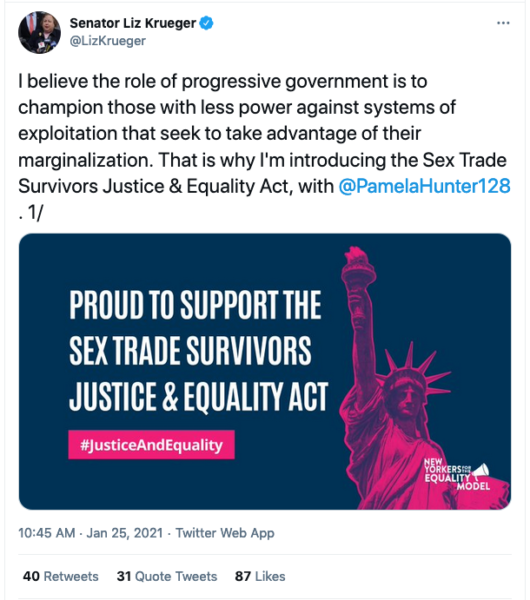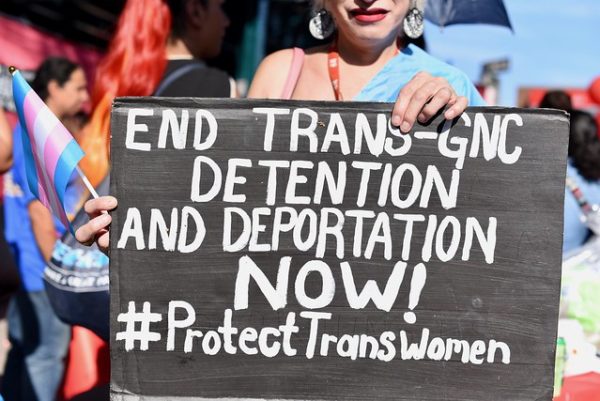The following is a work in progress as we quickly examine the roots of a bill, the Sex Trade Survivors Justice & Equality Act, that was was introduced in the New York state Senate by New York Senator Liz Krueger and Assemblywoman Pamela Hunter on Monday March 25, 2021. The purpose of the bill is to criminalize people associated with sex work and provide additional resources for policing, a form of criminalization that sometimes is referred to as the “Nordic Model.” The text of the bill is not yet publicly available leading to a moment in advocacy when we find ourselves responding to an issue without having the text before us. An important approach at BPPP, an approach that is shared by many of our coalition members in this case specifically the BSWC, is to review original source to decode exactly what is happening with new legislation, “terms of service” and other documents. Often when we dig deeper we find that the outcomes are far worse than we ever could have gleaned from reading press reports. We encourage everyone to follow the BSWC and sign on to materials the BSWC is developing.
Since the text of the introduced bill, the Sex Trade Survivors Justice & Equality Act, is not available we reviewed Senator Liz Krueger’s tweets to find out more. Her tweets led us to the website of the New Yorkers for the Equality Model, illuminating the thinking behind the bill and the sleight of hand brought to bear in efforts to criminalize sex work, sex workers and to bolster policing at almost any cost to low income communities, immigrants and people of color.
The “bill summary” at the site hijacks the language of many years of advocacy to end the criminalization of sex workers and trans people’s lives in New York, without adhering to any of the policies that would actually create this change. The resources page for the “equality model” reveals the bill’s underlying anti-sex work philosophy, commitment to carceral approaches and equation of people’s efforts to secure their livelihood with violence.
While working in coalition to support efforts to educate about the bill, an advocate shared a link to an investigation by Propublica published in late 2020, that found that in New York City policing of the kind proposed by the “Equality Model” has targeted people of color and led to false arrests and sexual assaults by police officers. Since 2014 the city has had to pay over one million dollars in compensation to community members for rights violations.


